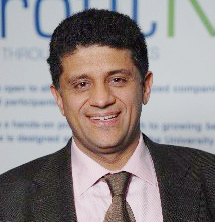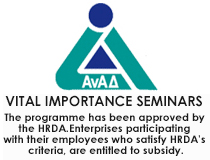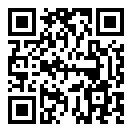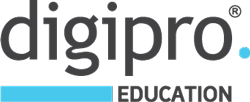Building up Innovation through Networking and External Funding for Small Companies

Instructor
-
 George TsekourasDr, DPhil, Director of CENTRIM
George TsekourasDr, DPhil, Director of CENTRIMDr. George Tsekouras is the Director of CENTRIM. He has led the research in the area of innovation and entrepreneurship in areas like peer-to-peer learning networks, innovation coaching, planning and implementing new product development strategies, fostering linkages with external research, open innovation for SMEs, public-private innovation partnerships and innovation in social enterprises.
He is the founder of a number of peer-to-peer learning networks in UK, Ireland, South Africa and Greece, which have supported more than 2,000 SMEs around the world. He was the coordinator of the RAPPORT consortium (www.rapport-project.eu), which looked at best practices to connect SMEs to the public or private research organisations. Currently, he works for a consortium that helps the European Commission to design the SME Instrument scheme, a new scheme to support innovation by European SMEs.
George has also worked in other innovation areas like innovation benchmarking, industry forecasting and business process re-engineering. He has a first degree in mechanical engineering and a DPhil in innovation management from SPRU at the University of Sussex. He is the author of a number of papers in academic journals, books and international conferences while he has designed and delivered many executives training and consultancy programmes on innovation-enabled entrepreneurship.

Recent Participants

Date
- Jun 04 - 05 2018
- Expired!
Cost
- Fully Subsidized
Location
The programme includes:
- Two full-days seminar at a luxurious venue.
- Half a day consulting session for each participating company.
- An extensive report for each participating company formulated to their needs. The report will include recommendations and suggestions for further consideration by the management.
- Full access to a seminar blog containing all presentations and further additional support materials and resources for each seminar participant.
- Full lunch and three coffee breaks for the two-days seminar for each seminar participant.
- No VAT is imposed to Digipro Executive Management Seminars. Please contact us for clarifications.
This valuable seminar will offer insights on how to develop new strategies, new systems and new policy instruments that Small Enterprises need to discover fresh ideas, access external funds and other resources and find new partners.
Small Enterprises need to innovate if they want to grow – some say if they want to survive in the long-term. Innovation takes a different shape depending on the stage of the company’s lifetime. Younger Small Enterprises enjoy abundant reservoirs of creativity; their leader(s) have several ideas of how to approach a market in a ‘fresh’ way and how to offer a radical new solution to existing customers or even approach a new set of customers. However, innovation requires much more than creativity. Innovation is about using the creative ideas to ‘complete the journey’, for instance finding the funds and other required resources, identifying suitable partners, form a relationship with them and most importantly making sure that the Small Enterprises captures the value out of the developing innovation. In several cases young Small Enterprises fail to do this; typical example the young company overwhelmed from the power of (their) fresh ideas while underestimating the significance of market alliances.
On the other hand, more established Small Enterprises need to evolve by infusing a substantial amount of change and by rediscovering themselves, their products and their services. In practice this means that these businesses must be prepared to ‘kill’ their habits and routines, move away from existing markets and customers and identify new fresh approaches towards growth and profits. However, this transition involves a lot of risks that may be detrimental for the company. For instance, following the track of a wrong new idea may lead the company in financial trouble. Moreover, the new strategy may require to write-off existing partnerships, identifying new partners, acquiring special systems and specific areas of expertise while for sure it requires extra resources. Most critically the new strategy has to be implemented in the absence of previous experience or considerable knowhow.
At the same time, policy makers like the European Commission have recognized the pressing need of the situation and have developed new programs (e.g. The SME Instrument) to allow Small and Medium Enterprises to receive funds for innovation together with guidance and support such as innovation coaching.
This seminar aims to support Small Enterprises to define and fund innovation projects in line with the stage of their lifetime and actively support these projects through new strategies, new tools and platforms and new policy instruments that can enable:
- The discovery of fresh and new ideas from across the world
- The identification of new business partners
- Access to global pools of (micro, small or large) investors
- The awareness and potential exploitation of (especially European) policies and funds that support innovation projects.
Participants should be employees of small companies ranging from 1-49 personnel. Employees must be aware of the potential exploitation from mainly European projects and policies that support innovation. Furthermore, they will be in a position to fully identify new ideas for networking and realise innovative projects that will enable them to offer new products and services for the Cypriot and the international markets.
This seminar aims to support Small Enterprises to define innovation projects in line with the stage of their lifetime and actively support these projects through new strategies, new tools and platforms and new policy instruments that can enable:
- the discovery of fresh and new ideas from across the world
- the identification of new business partners
- access to global pools of (micro, small or large) investors
- the awareness and potential exploitation of (especially European) policies that support innovation projects.
7:15 − 7:45 / Arrival and registration
7:45 − 8:45 / Introductions and Objectives of the seminar
8:45 − 9:45 / Innovation, Networking and External Resources
- Why?
- What is the potential value?
9:45 − 10:00 / Coffee break with biscuits and snacks
10:00 − 11:00 / Lifecycle stages for small enterprises evolution: typical innovation and business challenges
Exercise: identify your lifetime stage
11:00 − 12:30 / Strategic scoping and innovation challenges:
- Existing customers, existing products: Market penetration
- Growth through new products and new services
- Growth via geographical or market expansion
Exercise for individual trainees: Recognize business challenges and Identify your innovation project(s) to address business challenges by selecting innovation vectors and plan your innovation journey
12:30 − 13:30 / Lunch break at Hotel’s Restaurant
13:30 − 15:00 / Growth through new products and new services
- Segment the market & the market gaps
- Customers needs & wants (existing and latent)
Group Exercise: Work on a business growth project, segment the targeted market and identify the market gaps. The exercise will take place either on real business cases (from the participants) or a case study given by the trainer – optional choice by the participants.
15:00 − 15:15 / Coffee break with biscuits and snacks
15:15 − 16:15 / Growth via geographical or market expansion
- Set up systems, processes and operations
- The production process and the value chain – upstream and downstream
Video case study: The story of the Mini car will be shown, where a very successful new product fail because of poor planning in systems, processes and operations. Implications for our businesses.
07:45 − 09:45 / Crowdsourcing: New systems and tools to identify fresh ideas from all over the world
Crowdsourcing: New strategies to raise external funds
9:45 − 10:00 / Coffee break with biscuits and snacks
10:00 − 11:00 / Develop business alliances and partnerships for value:
Critical factors, different strategies and models
11:00 − 12:30 / New policy approaches – Trends, enablers and inhibitors
- The EU SME Instrument – Funding innovation projects in SMEs
- Innovation coaching to support innovation projects in Small Enterprises
12:30 − 13:30 / Lunch break at Hotel’s Restaurant
13:30 − 15:00 / Public Private Innovation Partnerships:
Best Practises to support Small Enterprises to find innovation partners.
15:00 − 15:15 / Coffee break with biscuits and snacks
15:15 − 16:15 / Develop an Action Plan
Conclusions and Feedback
Following the two day seminar, there will be a 4-hour on-site visit to each of the attending companies by Mr. George Tsekouras.
This amounts to high-level consulting advice that is tailored to the specific needs of the organisation and may be discussed in full confidentiality rather than in the open forum of the workshop.
The instructor will subsequently write an extensive report summarising the main discussion points and including recommendations and suggestions for further consideration by the management. This report may also include recommendations regarding additional training and development actions that the company’s management should consider to further strengthen its human capital.
The event is finished.

SUBSIDY, ATTENDANCE, AND CANCELLATION POLICY
HRDA Subsidy and Seminar Attendance
- A company’s participant is eligible for a subsidy when their Social Insurance and Industrial Training contributions have been settled in full by the time of registration/seminar. In case of ineligibility/disqualification, the company will be invoiced the full amount per participant.
- A company’s participant is eligible for a subsidy if he/she completes an obligatory attendance of 75% or more (both during seminar and company visit). In case of failure to complete the attendance, the company will be invoiced the full amount, per participant.
Cancellation and Substitution Policy
- Cancellations can be accepted up to 5 working days prior to the seminar without penalties. For any cancellations received after the deadline (or no-shows), the company will be invoiced the full amount per participant.
- Substitutions can be accepted any time prior to the seminar without penalties.
- Τhroughout the seminar participants must have their camera and microphone open, for better communication and as defined by the specifications of HRDA otherwise participants will not be approved by HRDA.

